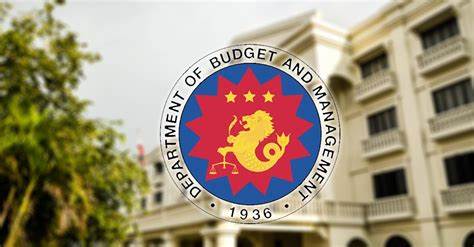The Department of Budget and Management or DBM on Wednesday submitted to House Speaker Martin Romualdez the P5.768-trillion proposed national budget for next year, which the lawmaker said would provide Congress enough time to evaluate the soundness of the fund allocations.
DBM Secretary Amenah Pangandaman delivered the proposal, also called the National Expenditure Program, on the date she promised after it was handed over to President Ferdinand Marcos Jr. last month.
“Your submission of the proposed national budget in less than 10 days from the start of the regular session of Congress provides the House ample time to study, discuss, and deliberate on the point of the proposal, and formulate a national budget that is responsive to the development needs of our country,” Romualdez said.
Compared to this year’s outlay, the proposed national budget for 2024 is higher by 9.5 percent.
Pangandaman had said in June that the national budget should be passed into law swiftly as it had been pre-approved by President Marcos and the government department heads.
She said the individual budgets proposed by government agencies totaled P5.90 trillion before the DBM trimmed it down to P5.768 trillion based on the agencies’ fund utilization capacities and the feasibility of their planned projects.
The proposed national budget will also undergo Senate deliberations before the consolidated version will be submitted to Marcos for his signature which would make it a law.
Pangandaman said priority allocations of the budget include education, infrastructure, and agriculture projects that are aligned with the goals of the administration’s Philippine Development Plan 2023-2028.
For agriculture, the allocation was set at P30.87 billion for rice production, P5.28 billion for corn, and P1.94 billion for high-value crops, among others.
“Higher investments will also be provided for agricultural support services, such as irrigation and the construction and rehabilitation of fish ports across the country and farm-to-market roads in key production areas,” Pangandaman said.
For infrastructure development, the proposed fund amounts to P1.42 trillion or 5.3 percent of the gross domestic product and covers schools, hospitals and health centers, water and power systems, roads, railways and airports.
Climate change projects
Among other priorities are climate change projects with an allocation of P543.45 billion, its bulk dedicated to water security.
Another is social development programs with a proposed fund of P112.8 billion to help 4.4 million families through the cash-transfer program Pantawid Pamilyang Pilipino Program of the Department of Social and Welfare Development.
Pangandaman said the pension for indigent senior citizens was doubled to P49.81 billion and would benefit more than 4 million.
Meanwhile, the housing allocation was pegged at P9 billion and will be used to shelter 6.5 million families over the next five years.
Education received the highest fund proposal as required by the Constitution at P924.7 billion.
The Philippines would be “one step closer” to realizing the government’s “transformative vision” for the country once Congress accepts the proposed budget according to President Marcos.
In his message, Marcos explained that the proposed budget aims to provide the resources required for government operations and the ongoing pursuit of economic reform.
The planned budget is P9.5 trillion more than the P5.268-trillion General Appropriations Act for 2023.
“With the Congress’ approval of the proposed (Fiscal Year) 2024 National Budget, we will be one step closer to achieving our transformative vision for the country, the Agenda of Prosperity,” Marcos said.
“Our journey has just begun. We will march on — one nation, one people building a better future together,” he added.
The President said that the proposed budget for 2024 was a key part of the Philippine Development Plan 2023–2028, which aims to strengthen the country’s capabilities, protect the buying power of Filipinos, and improve output sectors to create more good jobs and products that can compete globally.
“In turn, these strategies are to be supported by an enabling environment characterized by macroeconomic stability, infrastructure development, bureaucratic efficiency, strong rule of law, and effective climate action,” Marcos said.
